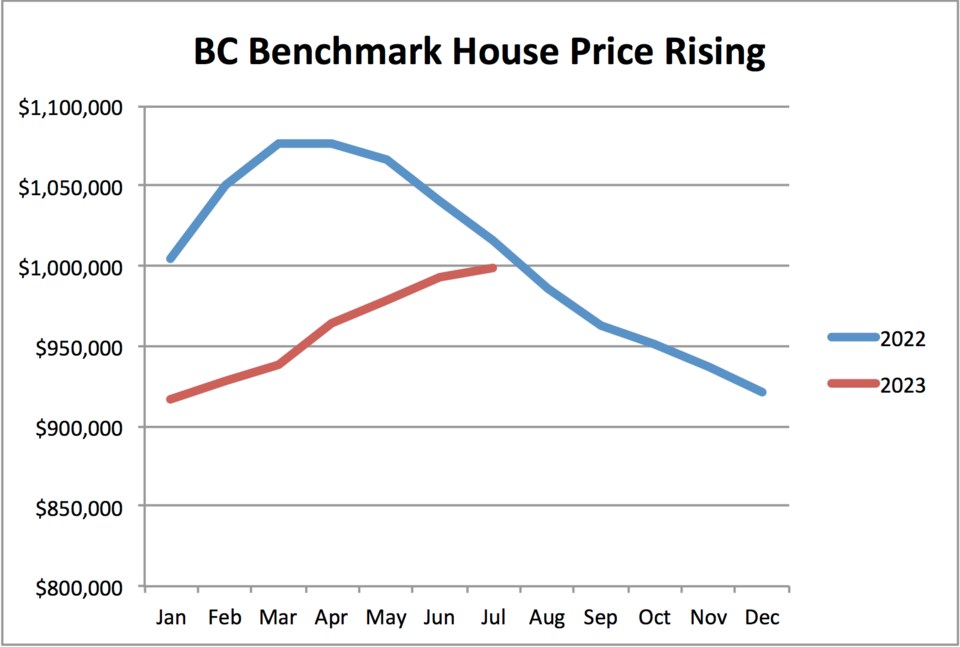A lack of listings is helping keep B.C. house prices high, but the province’s real estate association say other factors could lead to a 2 per cent decline in pricing this year.
“The BC housing market has been more resilient than expected in 2023, with both home sales and prices holding up well in the face of sharply higher interest rates,” said Brendon Ogmundson, chief economist with the BC Real Estate Association.
BCREA’s quarterly housing outlook, released Aug. 29, said that “very low” inventory means that housing prices have increased through much of this year even though overall sales have lagged last year. It attributes the gains primarily to activity in more expensive markets, where buyers have remained active even as listings fell.
Greater Vancouver sales have been trending above last year since May in both value and volume, with benchmark pricing rising quickly through April before slowing. The benchmark value for all MLS sales within the Real Estate Board of Greater Vancouver area is now $1.2 million, even with a year ago.
Province-wide, BCREA says that if current trends continue to play out, reduced buyer activity could pull down the average resale house price 2 per cent to $976,600.
A normalization in activity is expected as buyers acclimatize to the new interest rate environment and a new year dawns, even though rate cuts may not be in the cards until mid-2025.
“As home sales return to normal levels next year, we anticipate prices will rise 2.4 per cent to an annual average of just over $1 million, though there is risk to the upside on price growth given the state of housing supply,” the outlook stated.
Greater Vancouver will continue to be the most expensive market in the province in 2024, with an average resale price of $1.3 million, while the BC Northern will see the greatest gain in value at 4.8 per cent for an average sale price of $435,000. Kamloops and District is close behind with value growth of 4.2 per cent to an average of $615,000.
BCREA’s analysis indicates that supply remains the driver of pricing, underscoring the need not only for more listings but a broader stock of all housing types, both resale and new.
However, sales of residential land have plummeted this year, pointing to ongoing supply constraints for the foreseeable future even as the province mandates construction targets for municipalities in order to satisfy housing demand.



